
Science is evolving and ever-changing.
The Quran exhibits a surprising consistency with many currently-held scientific concepts, which stand as a great source of inspiration to its followers. Yet, it is vital to realize that science is ever-evolving and constantly changing. It may not be wise to try to attach verses of the Quran with scientific assertions and assume them as the litmus test for the Quran’s authenticity. Doing such can indeed be precarious when there is a change in a scientific theory.
While God’s narrative in the Quran is the final insight from the Creator, science evolves with time as it is the result of human endeavor to understand the universe based on observation. Readers of the Quran need to pay attention to that.
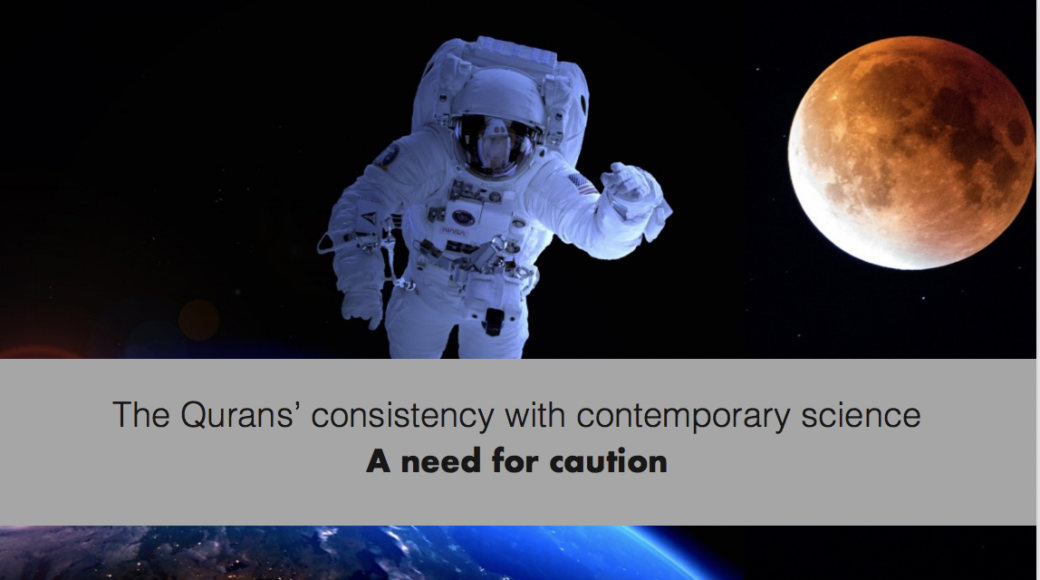
There has been a trend among some Muslims to read hidden scientific meanings in everything they read in the Quran. Their gratification may be short-lived as new data and observation can generate new hypotheses, which may not have apparent compliance with the Quranic interpretation.
The book of signs
The Quran is a sacred communication from the Divine to humans. It carries signs from the Creator, yet it is not a book of science. Delivering scientific knowledge is not its primary concern. It is a book that reveals God’s guidance to humans regarding how to live a just, peaceful, and meaningful life.
Humans, as the Quran asserts, are God’s ambassadors to the earth. The Quran describes various phenomena of the universe as testaments of the creative marvels of the Creator. While narrating those natural phenomena, the Quran always encourages its readers to pursue critical thinking and try to understand the intricate processes involved in the universe’s realities.
Read!
The Quran begins with a powerful invitation to knowledge, “Read!”. After two short verses, it alludes to the pen as the means to disseminate knowledge. The subsequent Quranic narrative attests that the human learning process is a divinely gifted life initiative.
The Quran relentlessly emphasizes humans to observe, think, reason, and comprehend the world around them. These are the qualities required to excel in understanding the universe and are the basis of human scientific advancement. Practicing observation and reasoning, as the Quran asserts, will lead a person to believe in God.
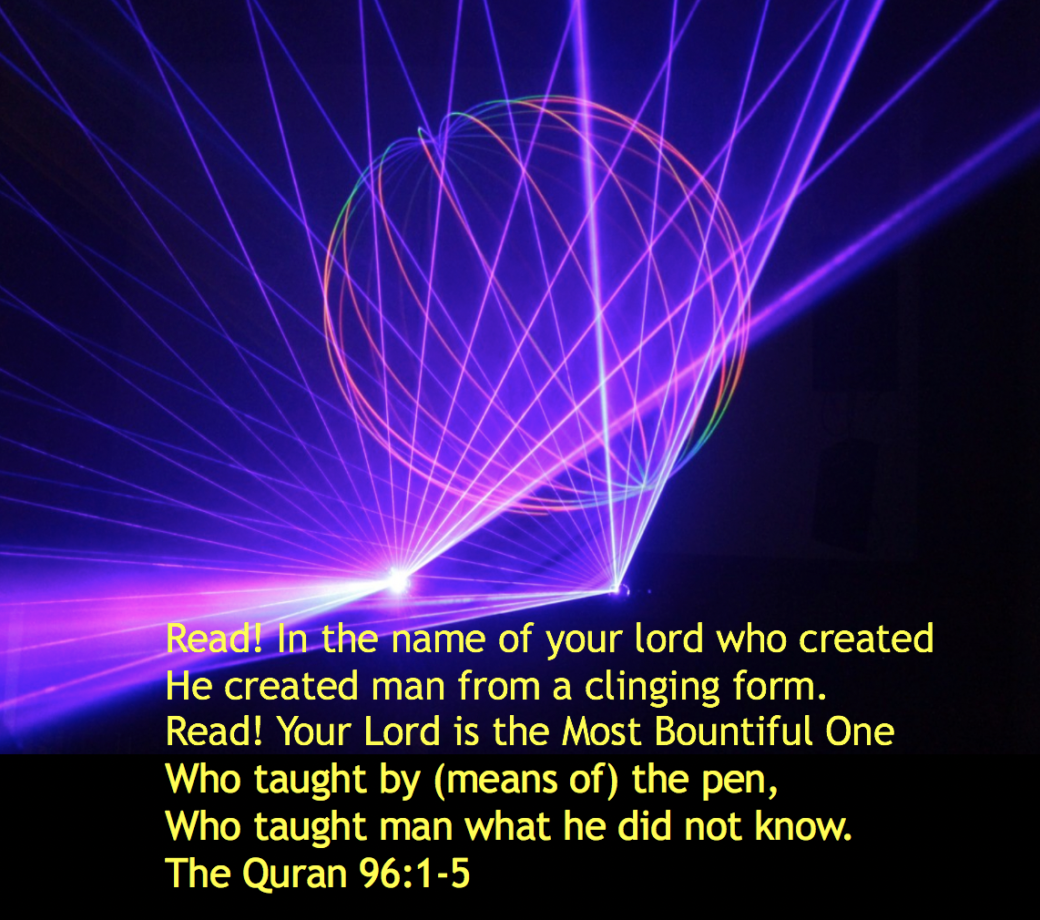
Does God’s existence need scientific verification?
It’s an individual decision if one chooses to believe in a Creator of the universe. The vastness of our universe, which has a diameter of 93 billion light-years span, makes us realize the sheer abundance of existence that is out there, which is unknowable, unthinkable, and beyond human reach, even in their wildest dream.
Follow the link for more: Live Science
It is a naivety to expect that the Creator of this incalculably vast universe (possibly multiverse and beyond) can be understood in any completeness, or measured by human measuring abilities. We can not reasonably think that we can define God or place a concrete scientific name tag to God. That is what many want to be able to do before they accept a creator’s existence, and that is just silly!
Please follow the link for more on science and the existence of God: https://qpeace.net/?p=932
Role of reasoning in believing God
The Quran asserts that the belief in God is an intellectual venture rather than that of blind faith. In the human spiritual journey, reasoning and then believing are essential tools to reach the ultimate truth. The Quranic narratives rationalize the existence of God. Humans cannot observe God physically, yet they can experience His presence through His signs embedded in the universe. That is the foundational concept preached in the Quran.
Why can’t we see God? Please follow this link for more: https://qpeace.net/?p=862
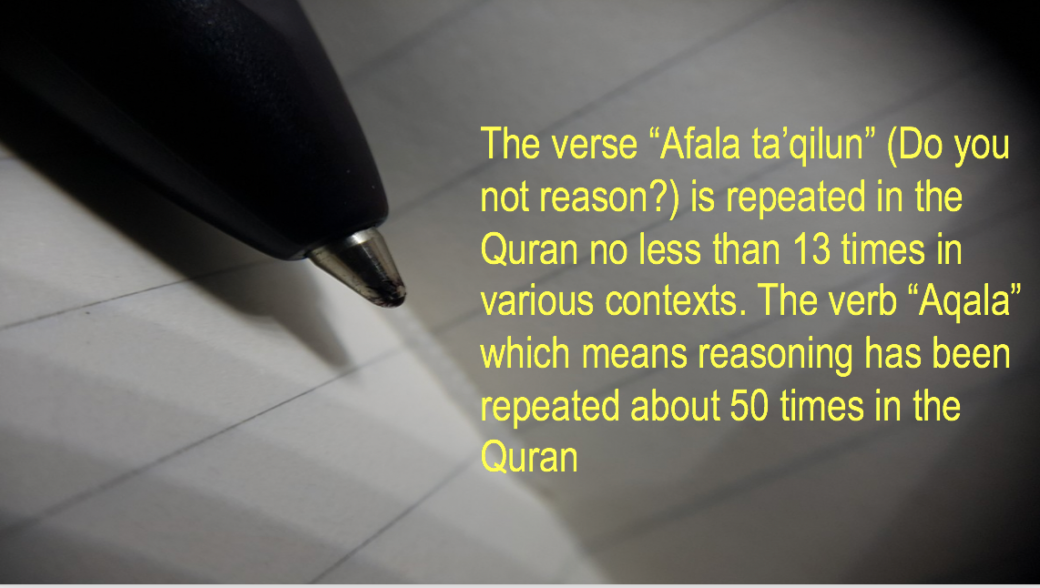
The Quran is allusive
The Quran’s descriptive pattern is not like a modern-day scientific publication presenting data. The Quran does not use current scientific terminologies, as there were none at the time of its revelation. It uses metaphors fitting to the time to describe the concepts unknown at the time. With metaphor and metonymy, the Quran presents its ideas to people of different times with varying scientific understanding levels.
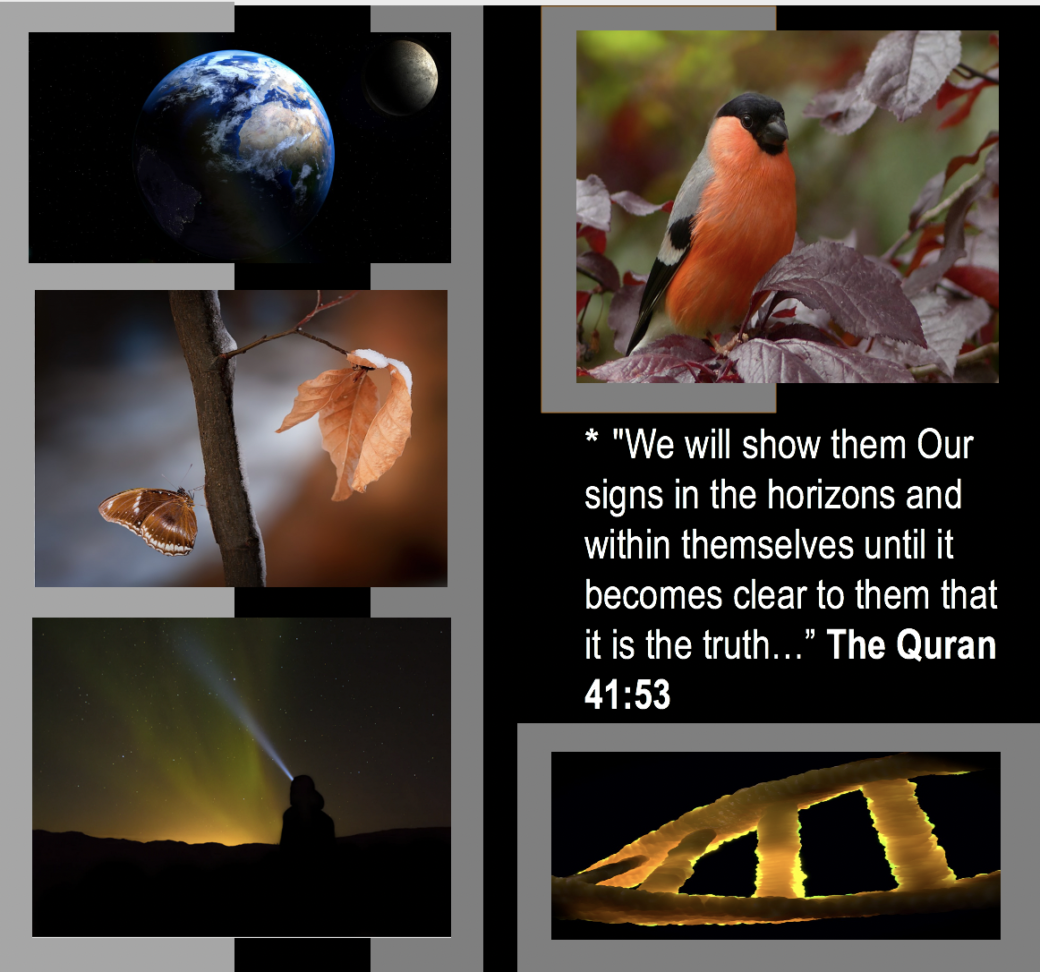
God’s signs are within us
To put it another way, God, the source of all knowledge, is the narrator in the Quran and the humans are the readers. As can be seen in the Quran, God informs humans about some of the Quranic verses’ metaphorical nature. To emphasize those verses, the Quran named them as the “Mutashabiha,” meaning “the definite meaning is unknown.” The Quran discourages attempts to dig deep and to try to find the meanings of these verses. Attempts to decipher the intents of the Mutashabiha verses may be misleading for the readers. The intellectual and cultural development in a particular generation may not be adequate to understand God’s all narrations. The Quran supports this notion in verse 3:7.
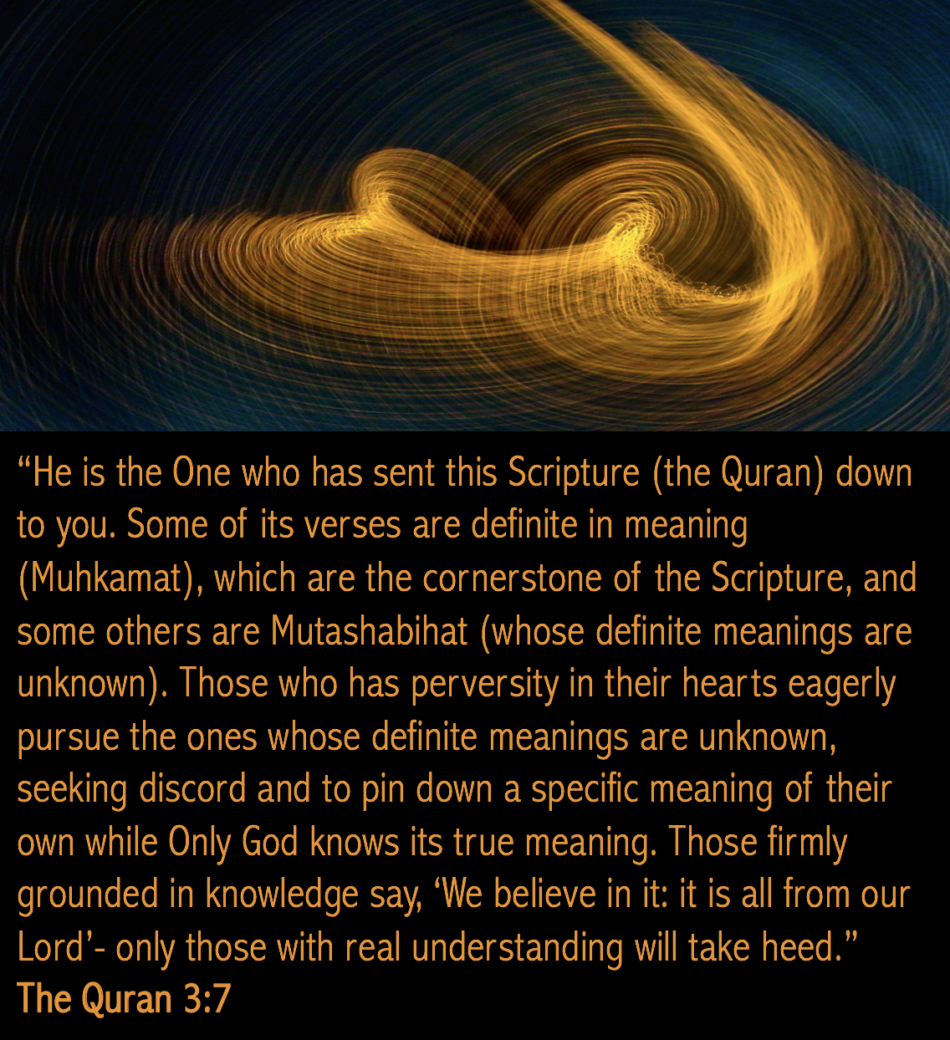
The “Mutashabiha” verses
The Quran does not identify which ones are the Mutashabiha verses. The earliest commentators and scholars believed that the verses describing the life after death, the resurrection of human beings on the Day of Judgement, the allegorical description of heaven and hell, and the verses describing phenomena beyond human understanding belons to the category of Mutashabiha.
It is also plausible that Allah revealed some of those “Mutashabiha” verses in the Quran for future readers with evolved scientific knowledge and understanding. Thus the Quran leaves an opening for interpretation to the future generations adding a new dimension to this ancient scripture. Indeed this is in line with Muslims’ belief that God has sent the Quran to humanity for all time.
Allah knows the best.

Be the first to comment